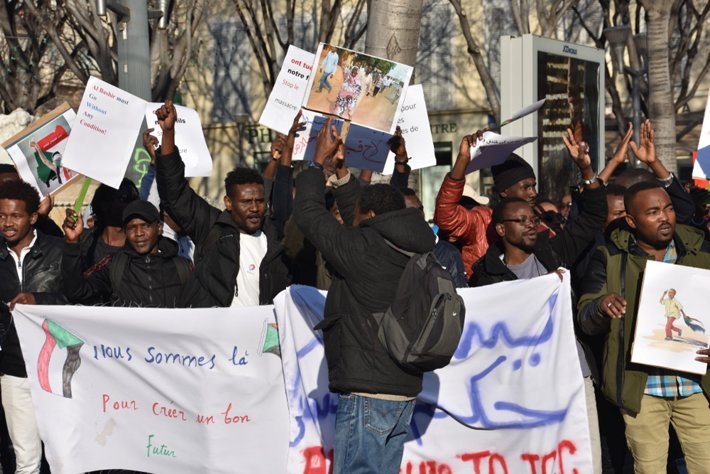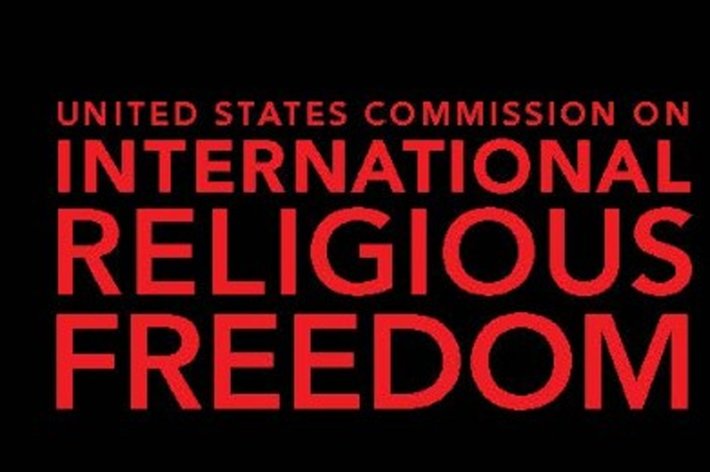Nearly two and a half months after Sudan banned the cultural practice of female genital mutilation (FGM), signaling what activists hailed as a “new era” for women’s rights in Africa’s third-largest nation, the government announced new laws, including a ban on public flogging and torture and the “apostasy law,” by which those found guilty of renouncing Islam could be sentenced to death.

Sudanese Justice Minister Nasredeen Abdulbari announced the sweeping changes as part of the government’s continuing efforts to end the oppressive 30-year rule of deposed President Omar Hassan al-Bashir, whose Islamic regime was overthrown in April 2019 following months of popular protest. In August 2019, a transitional sovereign council of civilian and military leaders was installed, headed by Prime Minister Abdallah Hamdok.
The New York Times reports that the announcement of the cancellation of these laws came on the heels of street demonstrations by tens of thousands of Sudanese who gathered despite the nation’s COVID-19 lockdown restrictions to demand that the interim council quicken the pace of reform and civilian governance.
“As a government, our work is to protect all Sudanese citizens based on the Constitution and based on laws that should be consistent with the Constitution,” the Justice Minister said on state television.
“We are keen to demolish any discrimination that was created by the old regime and to move toward equality of citizenship and a democratic transformation,” Abdulbari said, referring to the new regulations and offering his government’s first public description of their details.
Apostasy—or the crime of renouncing Islam and adopting another faith—was until recently punishable by death. It attracted particular condemnation worldwide after a pregnant woman, Meriam Yehya, was sentenced to be hanged because she married a Christian man in 2014. She gave birth in prison and was released after human rights organizations championed her cause. Yehya eventually fled the country, but the law remained on the books.
The apostasy law, Abdulbari said, was “a threat to the security and safety of society.”
The Justice Minister also spoke of the abolishing of the Public Order Law, repealed last November. The Public Order Law included the prohibition of alcohol consumption and allowed “morality police” to publicly flog women for misdemeanors such as wearing trousers in public.
A 2017 report by Strategic Initiative for Women in the Horn of Africa and The Redress Trust described the law as “designed to exclude and intimidate women from actively participating in public life, for instance by restricting their presence in the public sphere and controlling what they wear.” The law also empowered the government to inflict “the most draconian penalties, such as stoning and execution.”
Arbitrary application of the law underscored class divisions and conflicts in Sudanese society: “In recent years, it was common to see rich Khartoum women wearing trousers in public—while those targeted by the morality police were often poorer women from the marginalized areas on the periphery of this vast country,” reports the BBC.
Among other new laws that Sudan’s reformist caretaker government has implemented are measures that ban torture and forced confessions, according to Human Rights Watch.
In its 2020 annual report released last April, the U.S. Commission on International Religious Freedom, an independent, bipartisan federal watchdog within the U.S. State Department, stated that conditions for religious freedoms in Sudan had “improved significantly in 2019, although serious challenges remain.”
By February 2020, however, shortly after the USCIRF report was written, commission representatives visited Sudan to assess the state of religious freedoms and meet with Prime Minister Hamdok, senior officials and community and faith leaders.
“Based on this visit,” notes the report, “USCIRF determined that the transitional government has ended the former regime’s most egregious forms of religious repression and reaffirmed its commitment to substantive change.”
From its beginnings, the Church of Scientology has recognized that freedom of religion is a fundamental human right. In a world where conflicts are often traceable to intolerance of others’ religious beliefs and practices, the Church has, for more than 50 years, made the preservation of religious liberty an overriding concern.
The Church publishes this blog to help create a better understanding of the freedom of religion and belief and provide news on religious freedom and issues affecting this freedom around the world.
For more information, visit the Scientology website or Scientology Network.


